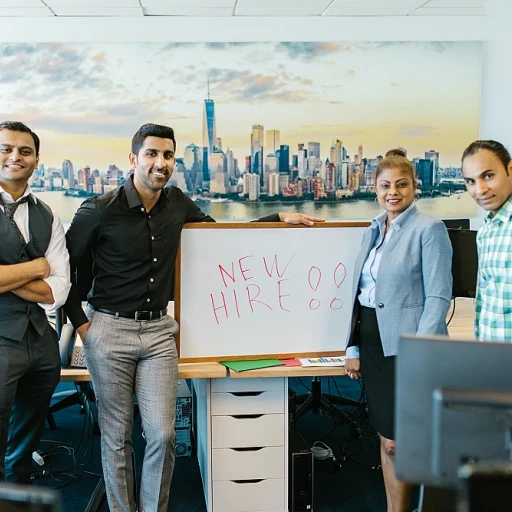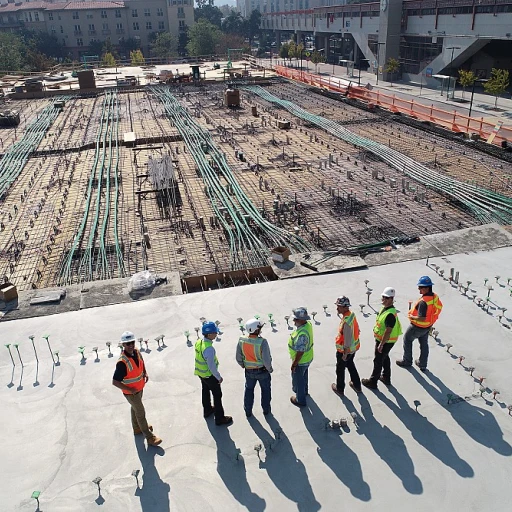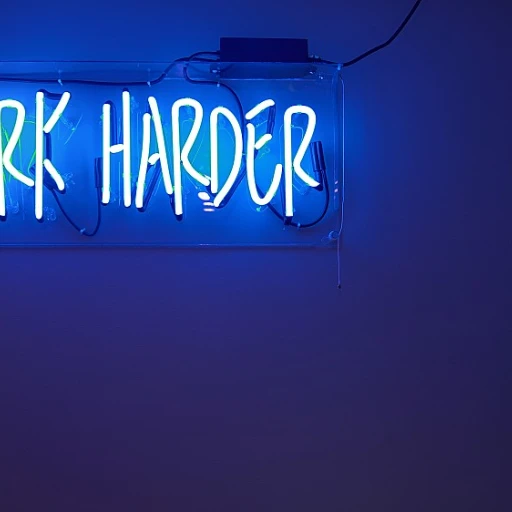
Understanding the Importance of Internal Interviews
Why Internal Interviews Matter
Internal interviews are a crucial component of a company’s talent management strategy. They offer a unique opportunity to assess the potential of current employees for new roles within the organization. This process not only supports internal mobility but also aligns with long-term company goals by fostering a culture of growth and development.
When a company prioritizes internal hiring, it sends a strong message to its employees: their contributions are valued, and there are opportunities for advancement. This can significantly boost morale and employee engagement. Moreover, internal candidates often have a deeper understanding of the company culture and goals, which can lead to a smoother transition into new roles.
Benefits for the Company and Employees
For the company, internal interviews can streamline the hiring process. Current employees are already familiar with the company’s operations, reducing the time and resources needed for onboarding. Additionally, promoting from within can enhance team cohesion and preserve institutional knowledge.
For employees, internal interviews provide a chance to showcase their skills and aspirations. They can demonstrate their readiness for leadership roles or other positions that align with their career goals. This process also allows employees to receive feedback, which can be invaluable for their professional development.
Setting the Stage for Success
To maximize the effectiveness of internal interviews, it’s essential to prepare thoroughly. This involves crafting the right interview questions that not only assess the candidate’s current role performance but also their potential for the new position. As an interviewer, understanding the nuances of internal interviews can help in evaluating candidate experience effectively.
For more insights on how to craft effective interview questions, especially those that promote diversity, equity, and inclusion, consider exploring this resource.
Preparing for an Internal Interview
Preparing for a Successful Internal Interview
When it comes to internal interviews, preparation is key to ensuring a smooth and effective process. Whether you're a hiring manager or an internal candidate, understanding the nuances of internal mobility can make all the difference. Here are some essential steps to consider:
- Review the Current Role and Responsibilities: Before diving into the interview process, it's crucial to have a comprehensive understanding of the current role and its responsibilities. This helps in crafting relevant interview questions and evaluating the candidate's fit for the position.
- Understand Company Goals: Aligning the interview questions with the company's long-term goals can provide clarity on how the internal candidate can contribute to the organization's success. This also helps in assessing the candidate's potential for leadership roles.
- Gather Insights from Team Members: Engaging with current team members can provide valuable insights into the role's challenges and expectations. This information can be used to formulate questions that assess the candidate's ability to integrate with the team.
- Prepare Relevant Interview Questions: Tailor your questions to evaluate the candidate's skills, experience, and potential for growth within the company. Consider what specific skills and qualities are necessary for the role and how the candidate's current role has prepared them for this new position.
- Consider the Candidate's Perspective: Internal candidates may have unique insights into the company culture and processes. Encourage them to ask questions that address their concerns and aspirations, fostering a two-way dialogue.
For a deeper understanding of how to craft effective questions that can enhance the interview process, consider exploring 360-degree assessment questions. This approach can provide a well-rounded view of the candidate's capabilities and fit for the role.
Key Questions to Ask as an Interviewer
Essential Interview Questions for Internal Candidates
When conducting an internal interview, it's crucial to tailor your questions to assess the candidate's suitability for the new role while considering their current position within the company. This approach not only helps in evaluating their potential but also ensures a fair and comprehensive interview process.
Assessing Skills and Experience
- How have you contributed to your current team, and what achievements are you most proud of? This question helps gauge the candidate's impact and accomplishments in their current role.
- Can you describe a time when you had to adapt to a significant change within the company? Understanding how candidates handle change can provide insights into their flexibility and resilience.
- What skills have you developed in your current role that you believe will be beneficial in this new position? This question allows candidates to highlight their growth and readiness for the new role.
Understanding Motivation and Alignment
- Why are you interested in this new role, and how does it align with your long-term career goals? This question helps assess the candidate's motivation and alignment with company goals.
- How do you envision contributing to the team and company in this new position? This question evaluates the candidate's vision and potential impact on the team.
Evaluating Leadership and Teamwork
- Describe a situation where you took on a leadership role within your current team. What was the outcome? This question assesses leadership skills and the ability to influence team members positively.
- How do you handle conflicts or disagreements with colleagues? Understanding conflict resolution skills is vital for maintaining a harmonious work environment.
For more insights on navigating the interview process, check out this comprehensive guide.
Questions Candidates Should Consider Asking
Essential Questions for Internal Candidates
When preparing for an internal interview, candidates should be ready to ask insightful questions that demonstrate their understanding of the company and their current role. These questions not only help candidates gauge if the new position aligns with their career goals but also show the hiring manager their commitment to the company’s success.
- What are the key responsibilities of this role? Understanding the specific duties and expectations can help candidates assess if their skills and experience align with the job requirements.
- How does this position contribute to the company’s long-term goals? This question shows that the candidate is thinking strategically and is interested in how their role fits into the bigger picture.
- What are the current challenges faced by the team? Knowing the obstacles the team is dealing with can help candidates prepare to contribute effectively from day one.
- How does the company support internal mobility and career development? This question is crucial for understanding the opportunities for growth and advancement within the company.
- Can you describe the team dynamics and leadership style? Understanding how the team operates and the manager’s approach can help candidates determine if they will thrive in the new environment.
- What are the expectations for the first 90 days? This question helps candidates understand the immediate priorities and how they can make a quick impact.
By asking these questions, internal candidates can gain a deeper understanding of the role and the team they may join. This approach not only aids in making an informed decision but also positions them as proactive and engaged employees ready to take on new challenges.
Evaluating Candidate Experience in Internal Interviews
Assessing the Candidate's Journey
Evaluating the candidate experience in internal interviews is crucial for fostering a positive work environment and ensuring the right fit for the role. Internal candidates often have a unique perspective, having already been part of the company culture and team dynamics. However, their journey through the internal interview process can significantly impact their perception of the company and their future engagement.
Feedback Mechanisms
One effective way to evaluate the candidate experience is through structured feedback mechanisms. After the interview, both the hiring manager and the internal candidate should have the opportunity to provide feedback. This can help identify any gaps in the interview process and highlight areas for improvement. Regularly reviewing this feedback can lead to a more refined and effective interview process over time.
Consistency and Fairness
Ensuring consistency and fairness in the interview process is essential. Internal candidates should feel that they are being evaluated on the same criteria as external candidates. This includes having clear and consistent interview questions that align with the job requirements and company goals. Transparency in the evaluation criteria can help internal candidates feel valued and respected, regardless of the outcome.
Role Clarity and Expectations
Another key aspect of evaluating the candidate experience is ensuring clarity around the role and expectations. Internal candidates should have a clear understanding of how the new position differs from their current role and what new skills or responsibilities will be required. This clarity can help candidates make informed decisions about their career paths and ensure they are genuinely interested in the position.
Long-Term Engagement
Finally, consider the long-term engagement of internal candidates. Successful internal mobility can lead to increased employee satisfaction and retention. By focusing on creating a positive candidate experience, companies can foster a culture of growth and development, encouraging employees to pursue new opportunities within the organization.
Common Challenges and Solutions in Internal Interviews
Addressing Common Obstacles in Internal Interviews
Internal interviews come with their own set of challenges, distinct from external hiring processes. Recognizing these hurdles is crucial for both interviewers and candidates to ensure a smooth and effective interview experience.
Balancing Familiarity and Objectivity
One of the primary challenges in internal interviews is maintaining objectivity. Interviewers might have preconceived notions about internal candidates based on their current role or past interactions. It's essential to approach each interview with a fresh perspective, focusing on the candidate's potential for the new position rather than their current job performance.
Managing Expectations
Internal candidates often have higher expectations regarding the outcome of their interviews. They might assume that their familiarity with the company or team gives them an edge. It's crucial for hiring managers to communicate clearly about the selection criteria and the competitive nature of the process. This transparency helps manage expectations and reduces potential disappointment.
Ensuring Fairness and Transparency
Internal mobility can sometimes lead to perceptions of favoritism. To counteract this, the interview process should be as transparent as possible. Clearly defined interview questions and consistent evaluation criteria are vital. This not only ensures fairness but also reinforces the company's commitment to equal opportunity.
Handling Feedback and Rejection
Providing constructive feedback is a sensitive yet necessary part of the internal interview process. Internal candidates deserve honest insights into their performance, especially if they are not selected for the role. This feedback should be framed positively, focusing on areas for growth and development within the company.
Time Constraints and Scheduling
Internal candidates often juggle their current responsibilities while preparing for interviews. Scheduling interviews without disrupting their work can be challenging. Offering flexible interview times and understanding the candidate's current workload can alleviate some of this pressure.
By addressing these common challenges, companies can enhance the candidate experience in internal interviews, fostering a culture of growth and opportunity.













